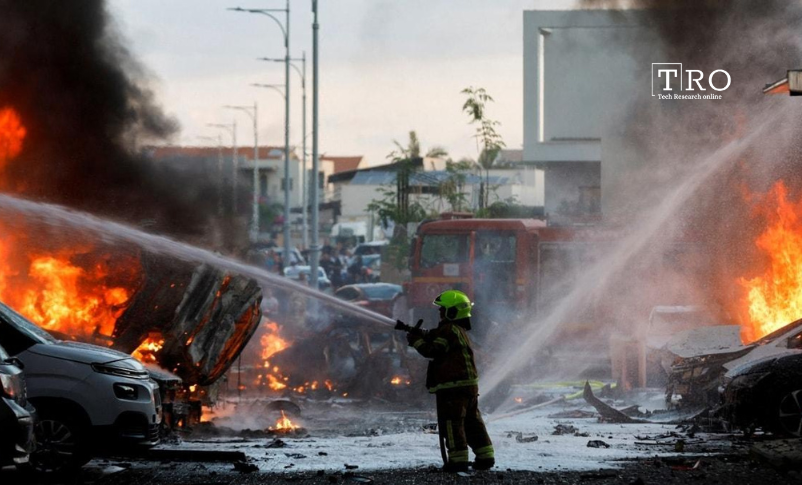News
Rising Concerns and the Israel-Palestine War Impact on Economy
With the Israel-Palestine war, industries all around the world are suffering from losses and threats. Nations are facing cybersecurity issues, investors are panicking about stocks, and tech companies are struggling with the spread of misinformation.
One instance of it is social media platform X, formerly known as Twitter. X updated its policies to combat hate speech and videos posted and shared on the platform. The video had content of violence faced by Israel and Palestine which killed hundreds of civilians in both nations in the last few days.
This isn’t just limited to violence but also extends to false and misinformation with the Israel-Palestine war’s impact on the economy being significant.
Tech Companies Stumble As Falsehoods Spread
The speed at which false information and news went online after the recent attack on Israel is concerning. Tech platforms like Meta and X are struggling to fight this spread of misinformation. The lack of content moderation policies, layoffs, and cost reduction have restricted the platforms’ ability to solve the issue effectively.
This false scenario was made by fake accounts impersonating journalists and war-themed video games surfacing around the Israel-Palestine conflict. Social media users are bombed with fake combat photos and old videos from Syria to look like they were taken in Gaza.
Andy Carvin, from the Atlantic Council’s Digital Forensic Research Lab, told AFP, “Social media platforms are struggling to keep up with the constant churn of misinformation and incitements to violence.”
Cyber Threats Increase With the War
Two days back, the Jerusalem Post, Israel’s news agency, was hacked into. Its official X handle said that the website crashed ‘due to a series of cyberattacks.’ The Israel-Palestine war is likely to spread in cyberspace as experts have warned of multiple instances of intelligence hacking and grid disruption that would affect allied nations on both sides. Cyber warfare consultants said that Dark web assaults may also be carried out for commercial gains while the world may see increasing malware attacks.
Siddharth Vishwanath, an emerging business leader at PwC told Livemint, “Israel has one of the most advanced security systems in the world. The Hamas attack on Israel perhaps means there may also have been a tech hack to suppress intelligence gathering and alerts. It is escalating in the physical world, and it is likely to escalate into a full-blown cyber warfare.”
Volatility in the Stock and Oil Markets
US and European stocks fell on Monday after investors reacted to the war between Palestine and Israel. The US stocks made a comeback by afternoon in the trading session. The Dow Jones rose 197 points or 0.6%, the S&P 500 added 0.6% and the Nasdaq Composite rose 0.4%.
David Donabedian, chief investment officer at CIBC Private Wealth US told CNN, “Right now there are a lot of ‘maybes’ and ‘ifs’ — and a real lack of clarity. Markets will continue to look at everything it usually looks at including climbing bond yields and the Federal Reserve’s future monetary policy decisions.”
The European stocks that fell in the morning stabilized a bit in the afternoon with France’s CAC 40 index falling 0.6%, while Germany’s DAX index dipped 0.7%. London’s FTSE 100 inched up 0.03%, propped up by gains in the shares of oil companies.
The price of oil also faced major changes as US oil prices settled at $86.38 a barrel, while Brent crude futures climbed to $88.15 a barrel.
Final Words
The question right now is whether the impact of the war on all aforementioned issues will conclude or go on to impact other industries and regions. The situation is still volatile and so are the stock and oil markets.

